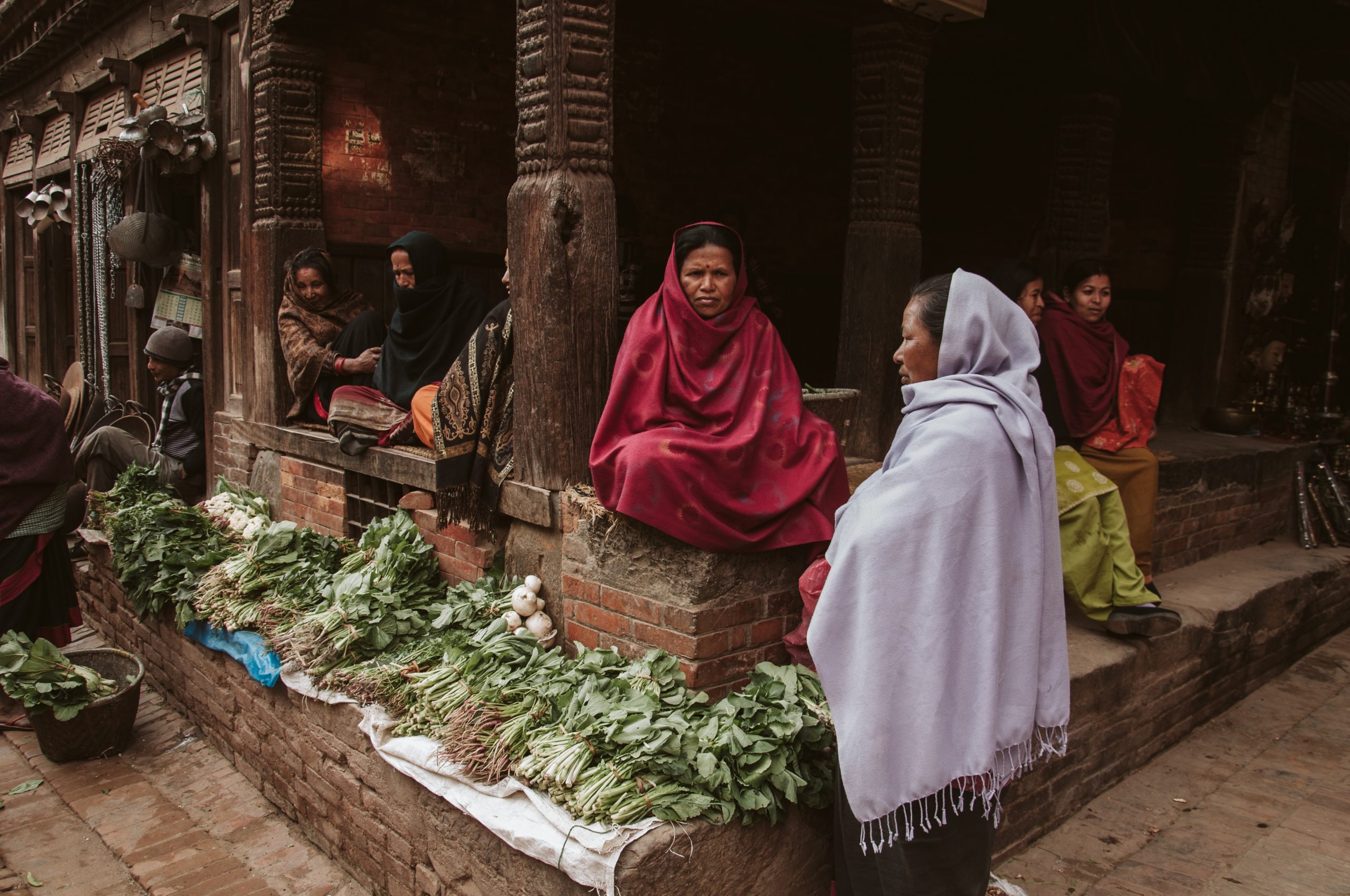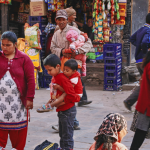In 2015, the people of Nepal granted themselves a modern and progressive Constitution. Its advent legitimised years of struggle and breathed new life into the democratic aspirations of people. The exercise of Constitution-making invited public participation and intense deliberations. A unique feature of the final document is the guarantee of Economic, Social and Cultural Rights (ESCR) as fundamental rights. To support their realisation, iProbono launched its ESCR Fellowship in 2018 – to empower a cohort of lawyers driven by their commitment to the promise of Nepal’s new constitutional values.
Legal aid lawyer and LLM student Sajita Ghimire joined the fellowship’s second cohort in November 2022. In this interview with Justice Leila Seth Fellow Shalanki Prasad, she shares her motivation to join the fellowship, her aspirations, and her story.
What inspired you to become an ESCR fellow?
I’m a lawyer and also a Masters of Law (LLM) student at Nepal Law Campus. I have not started my law practice yet, so this territory is new to me. I joined this fellowship to learn about the practicalities involved in the implementation of the law.
What domain of ESCR are you most excited to work on over the course of this fellowship?
The main area I am interested to work in, which is something I got introduced to during this fellowship – is the right to food. Food security is the most basic need of people but it doesn’t receive the attention required for its efficient management.
After joining the fellowship, I learned that The Right to Food and Food Sovereignty Act, 2075 – enacted in 2018 – still does not have its subsidiary rules after all these years. This creates a barrier in implementing the law in letter and spirit. The government has been largely negligent about the issue, leading to financial challenges for the farmers and producers of Nepal. The supply and distribution of food are mainly handled by middlemen and small groups of businesspersons, resulting in a monopoly in pricing and transportation of food material. As a result, the producers lose out on the actual price of their products, while the consumer pays an explicitly high amount for the same. The difference is appropriated unfairly by the middlemen due to lack of proper regulation.
The team of ESCR fellows filed a Right to Information (RTI) petition regarding this to help our upcoming interventions in the domain. There are other challenges, too, like the misuse of pesticides and chemicals, wastage of food, rapid fluctuation in food prices, and malnutrition, under the right to food that have not received adequate attention. I wish to continue working in this area to find appropriate solutions.
Justiciable ESCR is a unique feature of the Nepalese Constitution, could you shed some light on their evolution over the past decade or so?
ESCR are basic rights that everyone should have to lead free and dignified lives. Nepal’s law is fulfilling when it comes to providing rights and facilities to the citizens, but implementation is still weak and remains a challenge. I learnt after commencing my fellowship that there are laws that cannot be implemented because they lack any statutory basis. My mentor, Mr Raju Prasad Chapagai, taught me a great deal about the right to food and shelter and ways to overcome the challenges in their implementation.
Broadly, what would you say are the most pressing challenges to the implementation of ESCR in Nepal?
Ignorance on part of the government and political instability in Nepal are the primary barriers that need to be addressed. Citizens are largely unaware of their rights and the government is yet to provide financial and administrative support to the people on the ground working to bridge that gap.
Who are some of the human rights lawyers that inspire you?
There are many lawyers who inspire me, especially in the way they engage with their communities in Nepal. I have met some of them through my internship with the Legal Aid Consultancy Centre. Women lawyers, who were also my supervisors, had a significant influence on me and encouraged me to pursue my passion. One name I’d like to mention is that of Anjana Neupane.
How do you think the fellowship will fuel your professional development?
I see this opportunity as a stepping stone to my development as a professional. I’m still at the threshold of my career and the subject matter of this fellowship attracted me immensely, owing to my experience in the field of legal aid and active participation in litigation and counselling training. I think it’s a great place to start working. I’m building more confidence in my work and learning to shed my self-doubt. The fellowship gives me many opportunities to interact with people, making me open up and break out of my shell. Contributing to the community in the domain of ESCR while also working on myself as a professional is extremely fulfilling.
Could you elaborate on your background as a legal aid lawyer and your motivations to pursue a career in human rights?
I was always interested in human rights, community empowerment, and access to justice. During my internship with the Legal Aid Consultancy Center, I saw how people at the local level were unaware about their legal rights and wanted to bridge that gap.
I also worked at the Nepal Institute of Peace, on a project run in collaboration with the Dalit Feminist Upliftment Organisation, located in Bardiya. It is an initiative by all the Dalit women working there. When I first got my licence to practise, I joined as a Document Officer for this project, aiming to institutionalise voluntary legal aid provided by community paralegals. As part of our work, we advocated to bring the plight of paralegal volunteers to the government’s notice. My job mainly entailed research work. I was able to learn a lot about how legal aid works through community paralegals at the grassroots level in Nepal.
However, I realised that they still lack the recognition and support that they deserve from the government for their services. The main demographic of paralegals engaged with us consisted of Dalit women. They do important work to counter the injustices they had to face in their lives. They were engaged with other civil society organisations as well, who helped them draw the government and other stakeholders’ attention to their work. Despite the voluntary nature of the work they do, they still need and deserve financial and legal support from the state, which we were trying to secure through our efforts to institutionalise their paralegal services. It is also a fight for identity, so we tried to generate more public visibility for their work.
It gives me great satisfaction to make people aware of how they can access and utilise the laws and institutions enacted for their benefit.
What is your motivation to work for the upliftment of the Dalit community, particularly women?
I belong to the same community and have seen the injustices meted out to our women on a regular basis. Nowadays, people tend to avoid talking about caste discrimination and untouchability, but that only serves to invisibilise our issues further. The problems are still prevalent and remain deep-rooted. We face exclusion and discrimination across all stages of our lives, be it the workplace or intercaste marriage – where it is laid bare. It’s unfair and I think we have evolved past the need to grapple with such primitive issues. I really wish to eradicate the obstacles that the community has to face at every level because of caste.
What are the specific issues that Dalit women face when it comes to accessing their economic, social, and cultural rights?
Factors such as caste, class, and race intersect with gender to inflict violence and marginalisation on women across the globe. The caste system and caste discrimination remain a deep-rooted social evil in Nepalese society, acting as a barrier when it comes to education, employment, political participation as well as access to land rights of women.
I was working in a remote district in Western Nepal called Bardiya, where the dominant way of thinking remains quite orthodox and casteist. People in rural areas find it difficult to accept women in the workforce, let alone Dalit women. This resistance does not always come from outsiders, even families are unsupportive.
The disparity between Dalit women and privileged caste women, when it comes to these indicators, is stark. Like other marginalised groups in Nepal, the Dalit community also struggles to access proper healthcare and sanitation. While the resilient struggle and advocacy of the community has brought about some positive changes, caste equality still remains a distant goal on the ground level. Many Dalit people remain deprived of their rights due to the ostracisation they face in society. This, coupled with their lack of legal awareness, makes it almost impossible to access welfare services. The problem amplifies manifold as we move from urban to rural areas.







